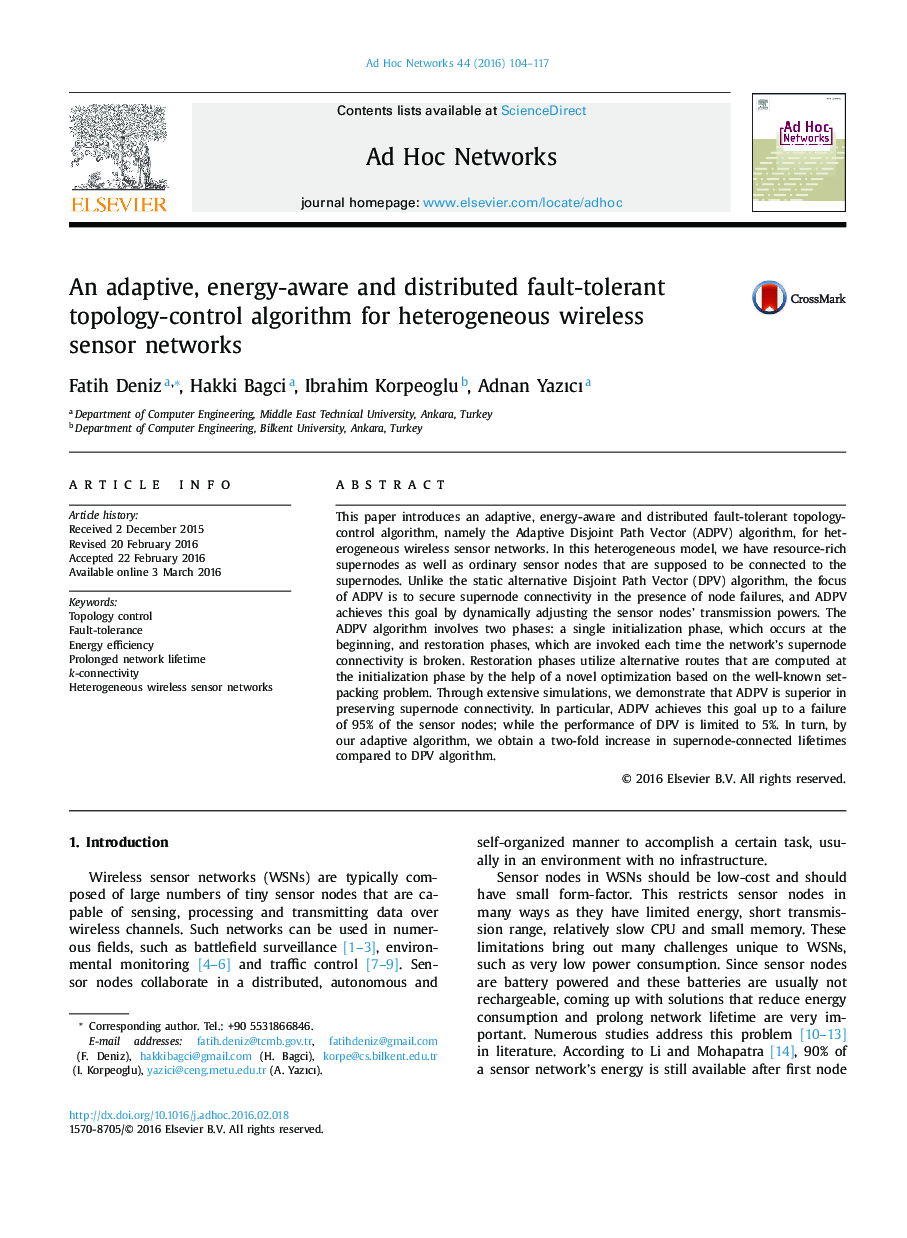| کد مقاله | کد نشریه | سال انتشار | مقاله انگلیسی | نسخه تمام متن |
|---|---|---|---|---|
| 445450 | 693191 | 2016 | 14 صفحه PDF | دانلود رایگان |
This paper introduces an adaptive, energy-aware and distributed fault-tolerant topology-control algorithm, namely the Adaptive Disjoint Path Vector (ADPV) algorithm, for heterogeneous wireless sensor networks. In this heterogeneous model, we have resource-rich supernodes as well as ordinary sensor nodes that are supposed to be connected to the supernodes. Unlike the static alternative Disjoint Path Vector (DPV) algorithm, the focus of ADPV is to secure supernode connectivity in the presence of node failures, and ADPV achieves this goal by dynamically adjusting the sensor nodes’ transmission powers. The ADPV algorithm involves two phases: a single initialization phase, which occurs at the beginning, and restoration phases, which are invoked each time the network’s supernode connectivity is broken. Restoration phases utilize alternative routes that are computed at the initialization phase by the help of a novel optimization based on the well-known set-packing problem. Through extensive simulations, we demonstrate that ADPV is superior in preserving supernode connectivity. In particular, ADPV achieves this goal up to a failure of 95% of the sensor nodes; while the performance of DPV is limited to 5%. In turn, by our adaptive algorithm, we obtain a two-fold increase in supernode-connected lifetimes compared to DPV algorithm.
Journal: Ad Hoc Networks - Volume 44, 1 July 2016, Pages 104–117
